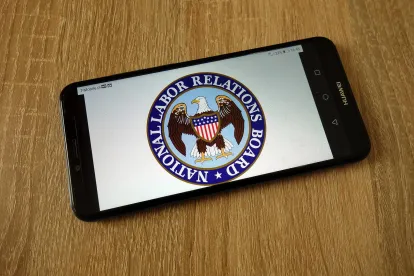The National Labor Relations Board in 2023 has continued on its pro-union path in all areas of traditional labor law. Many of the NLRB’s actions are the result of the ongoing advice memos which are being issued by General Counsel Jennifer Abruzzo. We previously have blogged about some of the advice memo topics, such as noncompete agreements, card-check recognition, and captive audience meetings. This course will not change as long as the Democrats maintain control of the agency and the majority of the seats on the Board.
As those who have dealt with union issues in the past know, the NLRB has authority over all aspects of the company-union relationship, from the initial union organizing process to collective bargaining if a union is chosen and then to individual employee protection for engagement in union activities. Each one of these areas of the law have been targeted with pro-union initiatives by the NLRB in recent months.
Union Organizing and Captive Audience Meetings
The first step in the unionization process usually begins with an employee or group of employees becoming interested in union representation and then engaging in organizational conduct. This can include informal conversations, maybe in a parking lot, to more formal activities such as called meetings and ultimately signatures on union representation cards. While companies have many ways to respond legally to such activities, one common way is to discuss employee concerns and complaints in regular or specifically-called meetings with employees. As we have written before, the NLRB likes to put these types of meetings in a negative context and label them “captive audience meetings.” The NLRB is attacking such meetings by trying to have them deemed illegal – as intimidating and coercive – in most circumstances. Recent developments on this front have involved lawsuits being filed by companies and industry groups to challenge the NLRB’s efforts regarding these employee meetings. Thus far these lawsuits have not been successful, and a case against the NLRB was dismissed as recently as this past month.
Collective Bargaining and Mandatory Bargaining Schedules
If a union effort is successful at a company, normally through a majority-vote election process, the next obligation on the company is the duty to bargain toward a collective bargaining agreement or “CBA.” While agreeing to the union’s terms is not required, companies do have the duty to “bargain in good faith.” This includes meeting with union representatives at reasonable times and at reasonable intervals, responding to union contract proposals, not making unilateral changes to employment conditions, and providing information in response to union requests. Often companies are accused of not bargaining in good faith by not setting up meetings with union representatives or by engaging in “surface bargaining” by not providing substantive responses to union proposals. On the recent development front, the NLRB in just the past few months issued multiple orders requiring companies to meet with the union on a specifically-set advance schedule. This historically has been a very unusual remedy for failure-to-bargain charges but is another example of the aggressive pro-union stance being taken by the Board.
Protected Union Activity and Employee Discipline
Individuals who engage in “protected concerted activity” as defined under the National Labor Relations Act are protected against adverse employment actions if those actions are based upon that protected activity. Employees in unions are protected under this principle, and workers in nonunion settings or who are not union members can be protected as well. Protected activity includes discussing wages and terms of employment with coworkers, approaching the employer directly about such issues, or even participating in a work stoppage over these issues. Historically, the Board has held that certain types of conduct, like threatening or harassing behavior, cannot be the basis for an NLRB charge because such conduct “crosses the line” and is not protected under the law. However, as our previous post mentioned, the NLRB is moving “the line” dramatically to broaden what type of conduct can now be protected. In a recent decision from just this summer, for example, the Board reinstituted overturned law and held that when an employee engages in aggressive or profane behavior in the context of a “heated” labor dispute, that conduct can be protected activity even if such conduct would constitute a dischargeable offense under normal circumstances under company rules. Employers now must apply a double standard to abusive employee conduct depending upon whether or not it occurred during a dispute about labor issues.
Key Takeaways
Here are some key points to keep in mind from this summer’s developments under the current Labor Board:
- Do not assume that previously existing labor relations principles “are the same as they always have been,”
- Make sure that you stay current in this area of law before implementing new policies or individual discipline, and
- Remember that all of these changing labor principles can apply even when your company does not have a union or a CBA.





 />i
/>i

